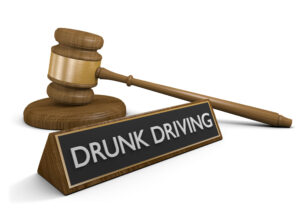
If you are convicted of a criminal offense, oftentimes your two biggest concerns are whether or not you’ll receive jail time and how much money you’ll have to pay as a result of your conviction for fines, court fees and other expenses. However, jail time and fines are not the only types of punishment you can face after a DWI. There are a number of court mandated programs that you may be required to attend as a part of your sentencing. We take a closer look at four of those programs in today’s blog.
Court Ordered DWI Treatment In Minnesota
In many instances, these court mandated programs are ordered in lieu of a jail sentence, but not always. The courts will punish you for your crime, but they also want to ensure that you make better choices down the road so that you don’t end up back in court for a similar crime. Many of these court ordered programs are designed to educate the offender and reduce recidivism by helping individuals understand the gravity of their choices. Here’s a look at four of these programs that may be ordered after a DWI conviction or plea agreement.
1. Alcohol Education Courses – Many first offense offenders will be required to attend a general alcohol education course. These typically take place over the course of a weekend, and you’ll spend hours in a classroom learning about alcohol, driving and the potential consequences of continued drunk driving. The course tends to run between $100-$300, and a certificate of completion is then sent to the county court to prove that you followed through on the course.
2. Local Alcoholics Anonymous Program – You may also be required to attend a local alcoholics anonymous program for a certain number of sessions or weeks. These are free and generally pretty accessible in bigger towns and cities. If paying for an alcohol education course would cause significant financial harm, you can ask the court to allow you to participate in a local Alcoholics Anonymous group.
3. Victim Impact Panel – Oftentimes a victim impact panel is included during a weekend-long alcohol education course, but they can also be ordered as a stand-alone program. As the name implies, this involves listening to stories from people who have been personally victimized by drunk driving. Hearing firsthand accounts of the dangers and the fallout of drunk driving can be more eye-opening than anything you’d hear from a course instructor.
4. Supervised Probation – A final type of treatment that may be ordered is supervised probation. If you are ordered to complete supervised probation, you will check in with a probation officer at regular intervals. They may be tasked with ensuring that you remain sober or hold a job during your probationary period. This helps to provide a little oversight as you work to get back to a normal life following a DWI conviction.
To learn more about the types of court ordered programs that may follow a DWI conviction, or to talk to a lawyer about putting up a defense to criminal charges, reach out to Avery and the team at Appelman Law Firm today at (952) 224-2277.





